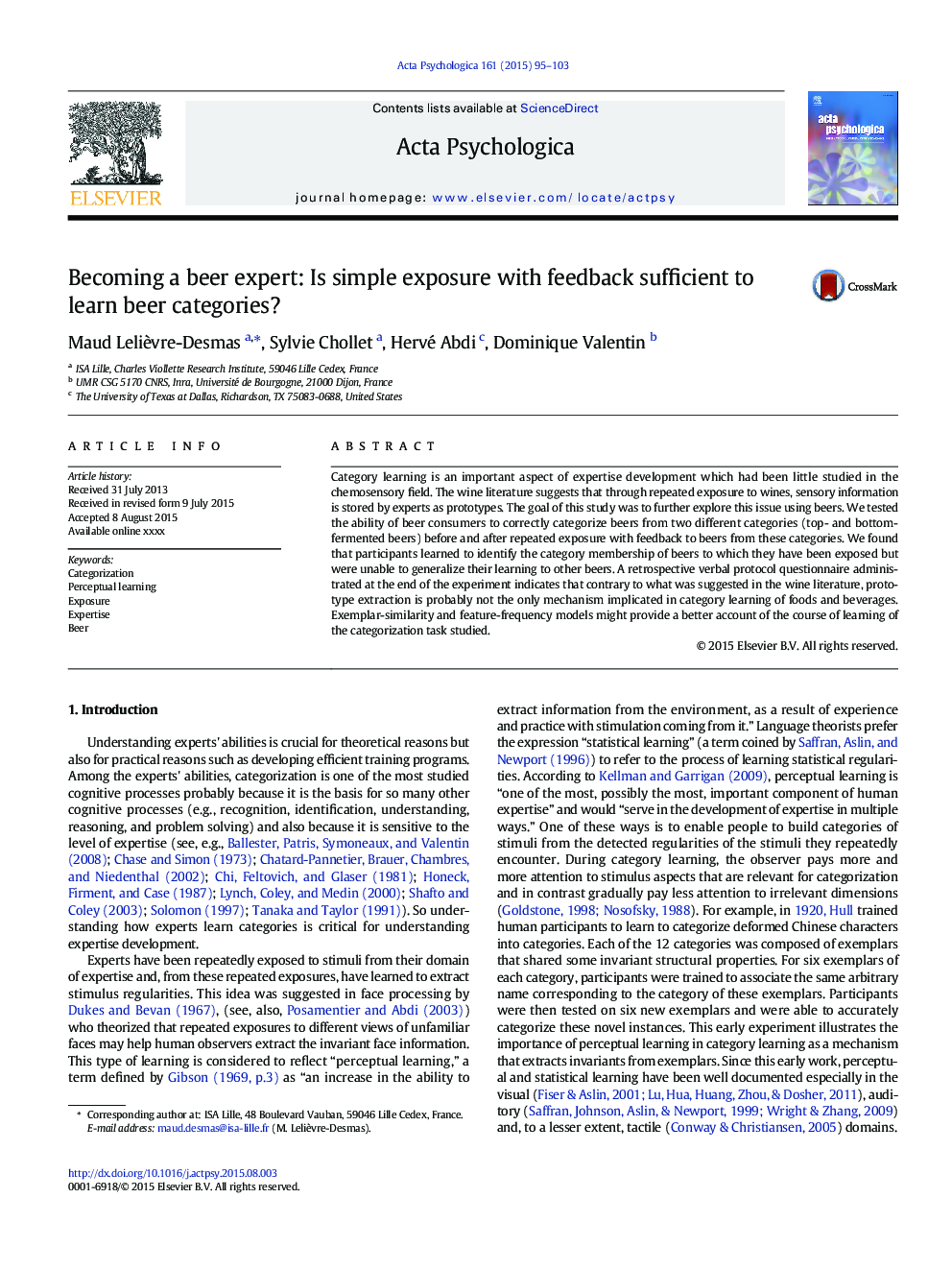| Article ID | Journal | Published Year | Pages | File Type |
|---|---|---|---|---|
| 7277241 | Acta Psychologica | 2015 | 9 Pages |
Abstract
Category learning is an important aspect of expertise development which had been little studied in the chemosensory field. The wine literature suggests that through repeated exposure to wines, sensory information is stored by experts as prototypes. The goal of this study was to further explore this issue using beers. We tested the ability of beer consumers to correctly categorize beers from two different categories (top- and bottom-fermented beers) before and after repeated exposure with feedback to beers from these categories. We found that participants learned to identify the category membership of beers to which they have been exposed but were unable to generalize their learning to other beers. A retrospective verbal protocol questionnaire administrated at the end of the experiment indicates that contrary to what was suggested in the wine literature, prototype extraction is probably not the only mechanism implicated in category learning of foods and beverages. Exemplar-similarity and feature-frequency models might provide a better account of the course of learning of the categorization task studied.
Related Topics
Life Sciences
Neuroscience
Cognitive Neuroscience
Authors
Maud Lelièvre-Desmas, Sylvie Chollet, Hervé Abdi, Dominique Valentin,
